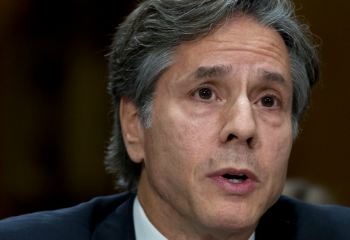World
Jindal wouldn’t say what he would do with illegal immigrants

Washington: Indian-American Republican presidential candidate Bobby Jindal has declined to say what he would do with the estimated 11 million undocumented immigrants, including about 300,000 Indians, living in the US.
“What we need from the federal government is to secure the border”, with Mexico, Louisiana governor Jindal, who is trailing in national polls told.
The US doesn’t need an amnesty plan or a “comprehensive approach” to dealing with the undocumented immigrant population living in the US, he said.
Jindal, according to CNN, didn’t directly answer whether he would support or rule out a path to “legal status”.
He insisted he would not discuss a plan for the millions of undocumented immigrants living in the US until the US-Mexico border is secured.
“I think the American people will be pragmatic and compassionate about the people here. But I don’t think they want that as part of the discussion on securing border. We need to secure the border first,” Jindal said, when pressed on his plan.
Jindal insisted that previous efforts to address illegal immigration have failed because politicians have looked to remedy both border security and the status of undocumented immigrants living in the country at the same time.
Jindal’s comments come one day after Republican frontrunner Donald Trump told that he would support a path to “legal status” for undocumented immigrants living in the US, but only after they leave the country and return through what Trump described as an “expedited process”.
As for the details of Jindal’s immigration plan that he would share, Jindal said the US needed a “higher wall” at the border and more resources to stop people from crossing into the US illegally.
Jindal said that he wanted to make legal immigration into the US easier, insisting that the immigration of individuals willing to assimilate and learn English would “make our country stronger”.
One week after a gunman killed two people in a Lafayette theatre in his state, Jindal also told CNN that people should be allowed to carry guns anywhere in public, including movie theatres.
“I’m a big believer that where you are legally allowed to be, you should be able to have your Second Amendment rights as well,” he was quoted as saying.
World
Lockdowns in China Force Urban Communities to Defy Censorship and Vent Frustration Online

Shanghai’s rich middle class is leading a wave of online dissent over the strict and prolonged lockdowns imposed in various parts of the country. Chinese internet censorship is struggling as patience is wearing thin in many urban centers, coming up with creative forms of online protests.
Social Media Posts Revealing Lockdown Tension in Shanghai
Drawn-out lockdowns are nothing new in China as authorities insist with the nation’s zero-Covid policy since the start of the pandemic. Currently over This time around, however, metropolitan areas like Shanghai are increasingly difficult to keep quiet, given that its more than 25 million residents have seen weeks of total isolation along with food shortages and many other service interruptions.
Dozens of towns and reportedly over 300 million Chinese citizens have been affected by lockdowns of different severity. As expected, urban netizens have been most outspoken over their difficulties by finding creative ways to get around state censorship and bans placed on topics, news comments and spontaneous campaigns.
Shanghai residents have been using mobile proxies and hijacking seemingly unrelated hashtags to talk about healthcare issues, delivery failures and the overall severity of their situation. The “positive energy” that the Chinese government wants to transmit during the recent prolonged series of lockdowns does not come naturally to those counting food supplies and online censors are working hard to filter words, trending topics and undesired social media sharing.
WeChat groups and message threads are under constant monitoring. Posts questioning the zero-Covid approach have been quickly deleted, including by leading Chinese health experts like Dr. Zhong Nanshan. Video footage is soon censored and protests and investigations are quickly made to disappear.
Where this has not worked, officials have exposed banners with warnings and outright threats like “watch your own mouth or face punishment”, while drones have been patrolling the city skies. Yet, if anything, this has led to further tensions and unspoken confrontation with Shanghai’s educated and affluent middle class.
Creative Online Solutions Harnessing Civic Energy
Announcements by Chinese social media that they would be publishing the IP addresses of users who “spread rumors” have not helped either. Tech industry research has shown that much of Asia’s tech-savvy population has a habit of using mobile proxies and other privacy tools, quickly finding workarounds to browse the internet freely and talk to the world about the hottest topics.
The sheer volume of forbidden posts is already a challenge for the very censorship system, experts explain. Unable to track all trending hashtags, state workers overlook topics that speak about the US, Ukraine or other popular news. Linking human rights elsewhere to their situation, Chinese online dissidents establish their informal channels and “hijack” the conversation to share personal or publicly relevant information about the Covid suppression in their town.
Sarcastic and satirical posts still dominate. Others hope to evade the censors by replacing words from famous poems or the national anthem. One thing is certain – social media, when harnessed with the right creativity, has proven its ability to mount pressure on the government in even some of the most strictly controlled tech environments like China.























